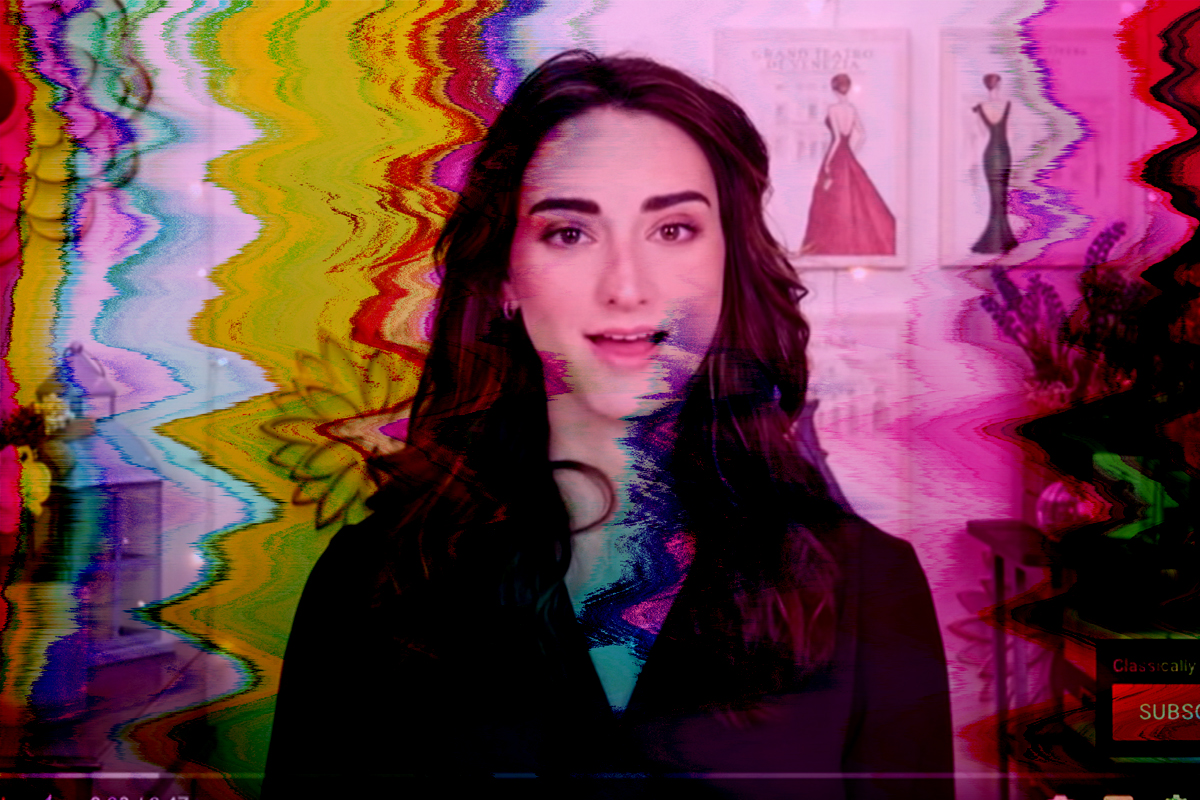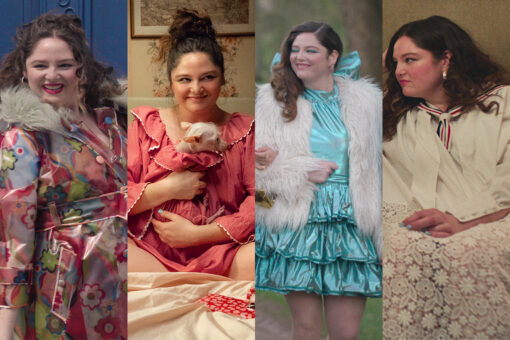A few days ago, while scrolling through YouTube at about 3 a.m. desperately trying to find the video that would cure my sleeplessness, I stumbled across a memorably titled one called “LADIES, STOP HOOKING UP|| A Jewish wife’s message about sex!” I watched the video, and then three more from the same channel, consumed by a mix of bewilderment and more than a little bit of dismay.
The channel is Classically Abby, and the Abby in question is none other than Abigail Shapiro, Ben Shapiro’s sister. Yeah… that Ben Shapiro. Like her brother, Abby is a Jewish musician turned far right spokesperson.
While Abby is a classically trained opera singer, the majority of her content focuses on promoting a distinctly women-oriented form of conservatism. Her YouTube account, as of this writing, has over 84k subscribers — and there’s a fairly noticeable difference between the videos that go viral and those that slide under the radar. The videos that typically receive low amounts of engagement are paradoxically the most positively received, and the further down you scroll in Abby’s blog and YouTube account, the more this dynamic makes sense.
Around seven months ago Abby began to create videos more overtly focused on dated ideas about gender roles, pop culture, and occasionally Judaism. Until that point she had been posting regularly on YouTube for a little less than a year about fairly harmless topics like makeup and hair, but unsurprisingly, her click-bait style titles began to draw in far more views.
While she explicitly distances herself from the label of “tradwife” through her motto “Let’s Be Classic,” Abby’s self-proclaimed opposition to modern feminism indisputably puts her alongside other tradwives. If you’re unfamiliar with the term, short for traditional wife, tradwife describes a certain genre of conservative female influencers who create content positioned against the demands of feminism.
Within the genre of conservative female influencers — largely composed of softly spoken white women who earnestly extoll the value of traditional gender roles, set against perfectly lit backdrops — Abby’s Jewish heritage undeniably separates her from other vloggers. Social media influencers within this particular internet niche are almost uniformly Christian. When I asked friends if they had ever seen any Classically Abby videos, most of them said something along the lines of, “Oh yeah, the Jewish version of Girl Defined.” Girl Defined is composed of two women who make videos and other content that’s fairly transparent in their encouragement of converting to Christianity, which they intertwine with a general longing to return to traditionalism.
Abby’s Jewish heritage and faith challenges the otherwise assumed Christian subtext of her genre. While both Christian bloggers and Classically Abby advocate for a return to tradition, the most glaring difference between these groups is that Abby ostensibly isn’t trying to convert anyone to Christianity — or Judaism for that matter.
Abby, who was raised in Modern Orthodox Judaism and currently identifies as “Orthodox aspiring,” is fairly open about the fact that Judaism is not a religion that seeks out converts. Yet she does more than simply share her opinions on her social media platforms, which include a YouTube channel, blog, Instagram, Twitter, and Facebook — she dogmatically proselytizes them.
Her constant ads on YouTube target seemingly every demographic of consumer and range from more benign topics like “10-MINUTE SPRING DRUGSTORE MAKEUP TUTORIAL” to videos that are clearly meant to be inflammatory, such as “Why We Should NOT Just #BelieveAllWomen.”
Abby’s calls to return to a more rigidly traditional social order may be superficially in line with Orthodox practices, but they really function as a respectable guise for harmful biases. For instance, on a surface level, her reasoning behind dressing modestly is outwardly in line with the traditional Orthodox value of tzniut, but actually serves to Trojan horse her other harmful ideas.
During a question and answer video in which Abby responds to the question, “Why preach modesty when different cultures have varying opinions on what it means?” she manages to include an alt-right dog whistle and slut shame, all while being painfully heteronormative. She reasons that in “Western culture,” breasts, butts, and the midsection are inherently sexual areas that should only be seen by your husband.
While the implication that a woman’s body is somehow unfit to be seen by those who aren’t her husband is harmful enough, I’m more concerned by her use of “Western culture.” In the same way that phrases like “globalism” or the “liberal media” function as coded references to the anti-Semitic idea of a global Jewish conspiracy, the term “Western culture” similarly has come to signal support of racist ideology. Abby’s use of a dog whistle in this instance points to the nature of her bigotry. By including covert references to more divisive (and harmful) beliefs, Abby helps to move them further into the mainstream.
Superficially, Classically Abby isn’t too different from the average conservative blogger, but as one of the few Jewish woman in this genre, she occupies a unique position. But rather than using her platform to possibly discuss this dichotomy, she positions herself as the authority on how Jewish women — and oftentimes women as a monolith — should behave.
Obviously, as a non-religious, queer Jew, I’m not Abby’s demographic and that’s exactly why I can recognize the veiled messages scattered throughout her videos. Abby knows who she is creating content for — I just hope that her growing number of subscribers know as well.
Header image screenshot via Classically Abby on Youtube; background via oxygen/Getty Images.



